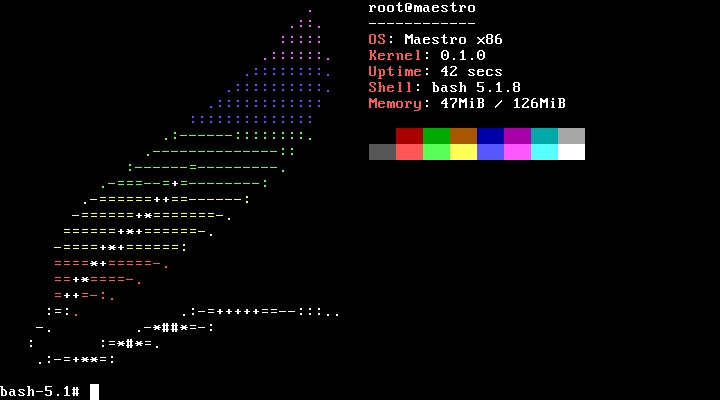Enter Maestro, a unix-like monolithic kernel that aims to be compatible with Linux in order to ensure wide compatibility. Interestingly, it is written in Rust. It includes Solfége, a boot system and daemon manager, maestro-utils, which is a collection of system utility commands, and blimp, a package manager. According to Luc, it’s creator, the following third-party software has been tested and is working on the OS: musl (C standard library), bash, Some GNU coreutils commands such as ls, cat, mkdir, rm, rmdir, uname, whoami, etc… neofetch (a patched version, since the original neofetch does not know about the OS). If you want to test it out, fire up a VM with at least 1 GB of ram.



Is there something inherently safer with how rust does things, or is it just a case of it being new, so the vulnerabilities haven’t been found yet?
I only know the hype. But the hype says that Rust’s ownership system makes memory usage much safer by forcing the coder to deal with data. Your values will eventually go out of scope, and you have to dictate when that will happen or else it won’t compile.
…or something like that.